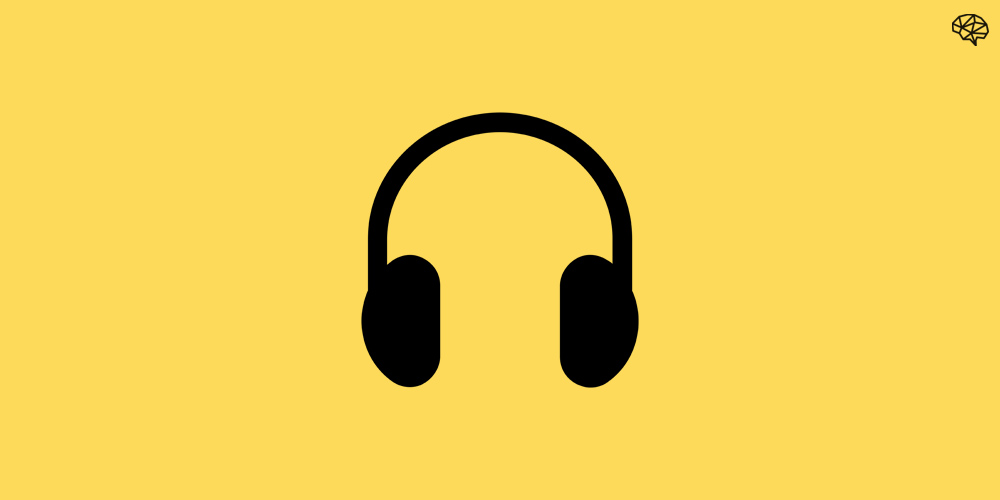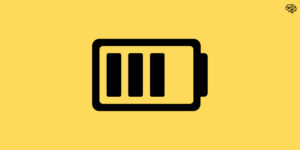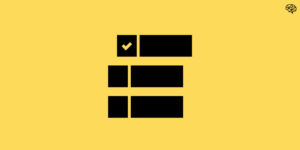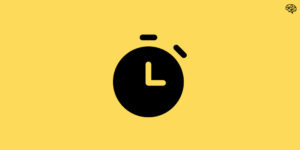One of the hardest things to do today is stay focused. 🔍
Getting focused isn’t all that difficult. But staying focused long enough to get something meaningful done feels next to impossible.
We’re living in an attention economy with an infinite number of sources vying for your precious attention. Nobody gives a shit about that project you need to finish or focus block you’ve carved out. They need your attention. Their bottom line depends on it so you better be damn sure they’ll do what they can to get it.
So yes, we live in a world where we’re constantly surrounded by distractions designed to pull us away from what’s truly important.
They’re everywhere and if you’re not intentional about protecting yourself from them you’re going to have a lot of trouble getting anything done.
Before we dive into how to do that, let’s talk about why we hate distractions.
Distractions = Context Switching
There have been plenty of articles written about context switching so I won’t waste time going too deep. Some of my favorite articles are this one and this one, if you’re interested in going down a rabbit hole.
But to prevent you from context switching away from this article (you’re welcome), I’ll take a second to tell you what it is and what it can do to you.
Context switching – a term that originates from the world of computing – is when you stop one task to start another even if you haven’t completed the first task. It sounds simple and we do it all day long, but the ramifications of context switching are pretty significant.
“Research shows it takes an average of 23 minutes to regain focus after a distraction because different parts of your brain are activated every time you switch between tasks.”
Source: The Cost of Interrupted Work
So yeah .. that little pause you made while working on your report to quickly check that email that came in? It cost you roughly half an hour.
The more you context switch – that is, jump around from task to task without finishing anything – the less effective you are. The longer it’s going to take you to get things done. The more overwhelmed and stressed out you’ll feel.
It’s not easy. Not at all. In today’s world of remote work, it’s easier than ever for a distraction to take you out of your flow and steal your time. You have to protect yourself from it.
Let’s talk about distractions.
Types of Distractions
There are two types of distractions:
- External distractions
- Internal distractions
Let’s chat about both real quick.
External Distractions
External distractions are the ones you’re already familiar with and probably experience on a daily basis. I think this GIF sums it up nicely:
External distractions come in many fun forms – your cell phone buzzing with notifications, your Slack going off, your mom yelling your name from the kitchen to let you know your sandwich is ready, a co-worker stopping by to chat, an email popping up in your inbox, etc.
These distractions are everywhere, all the time. Here are some ways to protect yourself against external distractions:
- Set up an effective work environment – how you set up your work environment will ultimately determine your ability to fight distractions. Set up your work area in a place that has minimal foot traffic facing away from any distractions. Keep your desk clear of clutter and your phone in a separate room.
- Cancel out the noise – if you don’t have the ability to set up a quiet work environment, get yourself a pair of noise cancelling headphones. They allow you to tune out external noise, improve your call quality, and most importantly serve as a signal to the outside world to leave you alone. Over the year headphones are great because they signal ‘Don’t bother me I’m focusing’.
- Be on the same page – if you’re working remotely and sharing the same working space, be clear about what warrants a distraction. Create signals so others know when you’re free to be distracted and when you’re not. Those headphones will work, but you can also use paper – put a red paper on your desk when you’re in work mode and green paper when you’re not.
- Remove all notifications – disable all notifications from your computer (and phone ideally). Don’t worry, you’ll be fine. You want to be in control of when you check your devices, not the other way around.
- Minimize the tabs – only open browser tabs you actually need. If it’s out of sight, you’re less likely to go check something real quick and end up in a rabbit hole.
None of these are fool-proof, but together these will give you a fighting chance against external distractions.
Now let’s talk about internal distractions.
Internal Distractions
Internal distractions are less familiar, but they come about often.
You’ll find yourself working on an important project when out of nowhere a thought pops up – a great idea, a reminder, a worry. Suddenly your mind is wandering and you’re left completely discombobulated. Internal distractions hijack your mind and take you away from the task at hand.
These are also much more difficult to fight against because .. well .. it’s your damn mind and we don’t always feel in control of that.
Here are two ways to protect yourself form internal distractions:
- Have a pen and paper at hand – anytime a random thought pops up, immediately write it down. You want to take it from your mind and move it to paper to think about later. By giving the thought a physical presence you can relieve yourself from thinking about it. The list also serves as a log of all the random thoughts that come across your mind which is great for reflection.
- Theme your days – if you’re working on two or three wildly different types of tasks within the same focus block, you create more room for internal distractions to happen. Give yourself a theme with each focus block (eg. I’m only going to be focusing on proposals).
These require a lot more effort, but internal distractions can be managed and subdued more easily with practice.
Be effective
To be effective in today’s world, you need to have firm control over the external and internal distractions that surround us.
You’ll never be truly distraction free. Even the most Zen work environment won’t free you from the thoughts that hijack your mind.
But with the right strategies you can stay in control. You can put the tools in place to keep distractions at bay and give yourself a fighting chance to actually get something meaningful done.
Good luck.
✌





